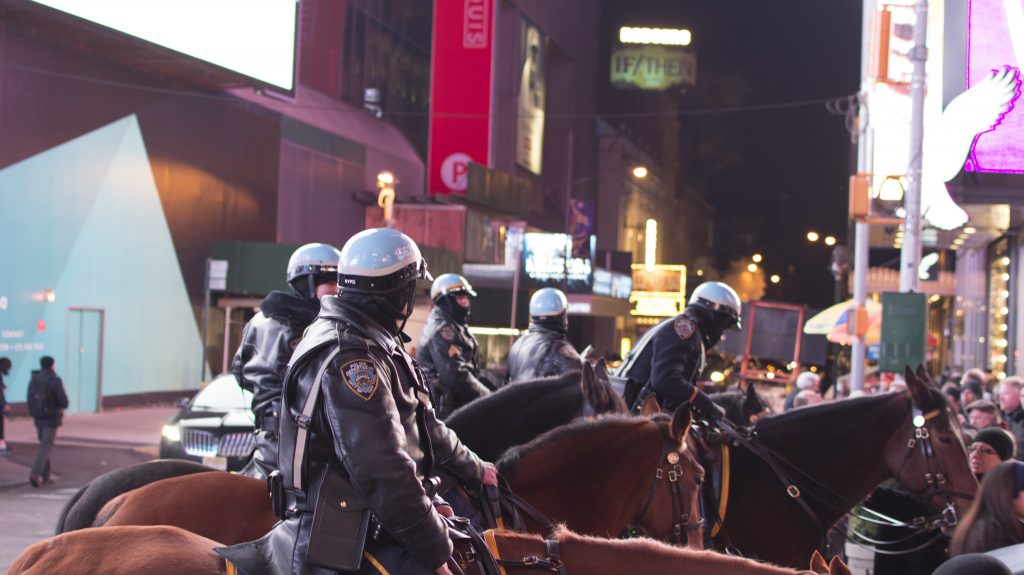By Saul Roth
Police officers with low self-esteem experience many psychological conditions, such as depression and anxiety, and are more prone to suffer burnout. Additionally, officers could begin with stable self-esteem that corrodes after suffering burnout. Officers with low self-esteem feel as though they are not performing their job efficiently and feel that others are judging them constantly. The police department can actually foster low self-esteem by not acknowledging good performance coupled with the constant negative discipline (Rosse, Boss, Johnson, & Crown, 1991).
Similarly, female officers experience the same negative circumstances as their male counterparts. They experience stress, work in the same bureaucratic departments, have to depend on their co-workers, and must attempt to cope in the same manner. Burnout sets in when the stresses from the work environment are not managed successfully. Female burnout is consistent with the male officers’ burnout levels. Even though the burnout levels are similar, women are still affected more by some of the serious incidents they experience during a shift. Black female police officers, for example, experience higher levels of police burnout than their colleagues. This might be the result of being a double minority in a profession that is dominated by White males. In fact, African American police officers (male and female) have the highest rate of suicide of any profession (McCarty, Zhao, & Garland, 2007).
Police departments are constantly attempting to recruit military veterans on the belief that they are better able to handle police work and that the paramilitary organizations make better officers than non-military recruits. Even though the military veterans might perform better in the police academy and in military-style units such as special operations, they are susceptible to burnout the same as an officer without military experience (Ivie & Garland, 2011).
The main symptom of burnout is exhaustion, which can lead to anxiety and depression. Moreover, the cynicism created is a coping strategy the officer develops. Burnout creates much of the negative scenarios that can cause police suicide. Burnout also leads to alcoholism, drug abuse, and psychological problems. Burnout is irreversible; officers who experience poor supervision, constant exposure to violence, and time restraints are more susceptible to burnout (Vuorensyrja & Malkia 2011).
VI. Administrative Stress
To a police officer, the relationships with other members in the police department become an important part of his or her life. The police chief may even carry the role of father, while the more experienced police officers are the older siblings. The new police officer strives to gain acceptance to the department in which the officer works. Also, like in school, the new officer tries to be accepted by his or her peers. Being accepted by the officer’s peers helps the officer cope with the stress that the job will entail. In fact, police departments that allow their subordinates to participate in the decision-making processes and day-to-day operations with other members reduce stress in their police officers (Brooks & Piquero, 1998).
There are many different types of police departments and an officer’s stress level may be a function of the type of department in which he or she is housed. There are large city and suburban police departments, as well as small police departments for counties, towns, and villages. Many cities also have police departments covering their transportations facilities. The larger police departments often cause more stress for their police officers. Police officers in these large departments often feel the department is impersonal and as though the department does not support them. Large city police officers also experience more stress from the danger, dealing with the public, administrative work, and quotas. In addition, the larger police departments are more bureaucratic and have more rules and regulations for the police officer to follow. Lastly, officers who are promoted up the ranks may experience more stress (Brooks & Piquero, 1998).
In contrast, there are police officers that cannot or do not desire to be promoted. Some police officers take promotional exams and do not score high enough. Some officers that do not gain promotion feel like failures to their peers and family. Most officers that do not take promotion exams do so to avoid the drop in pay. The promotion might have steps to top pay, but on the other hand may have fewer overtime opportunities. Many female police officers will not take promotion exams because of issues with childcare. Finally, many officers are content with what they are doing: They enjoy the shift that they are on, their duties, and their peers. Police officers also observe the stress that their sergeants are under. The sergeants are overwhelmed with administrative work and spend much of their work time in the precinct. Many officers do not want to be responsible for what other police officers will do while under their supervision if they were promoted to sergeant. These promotional problems suggest that while there is stress in not getting promoted, there is even more stress when actually promoted (Whetstone, 2001).


Recent Comments